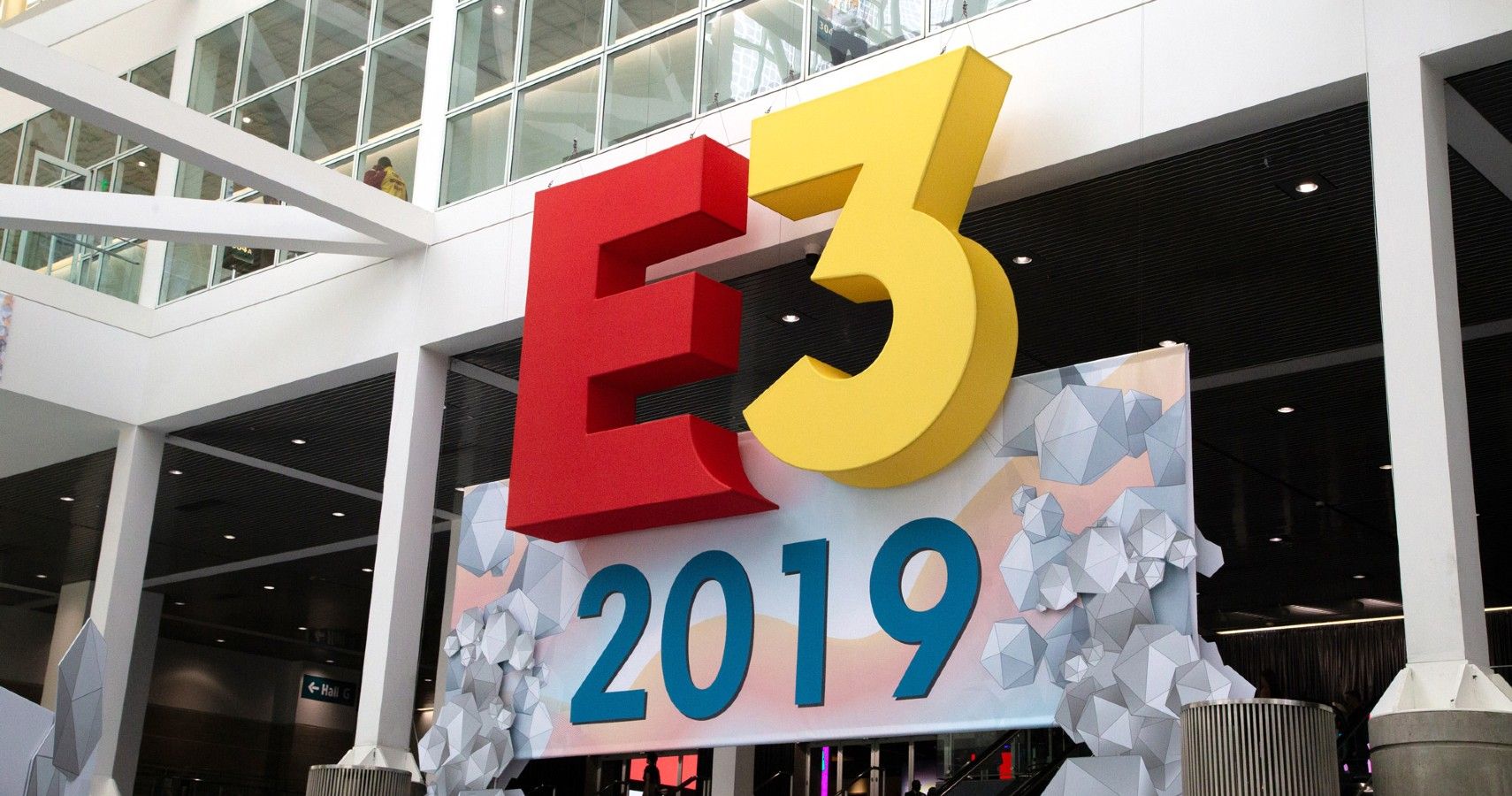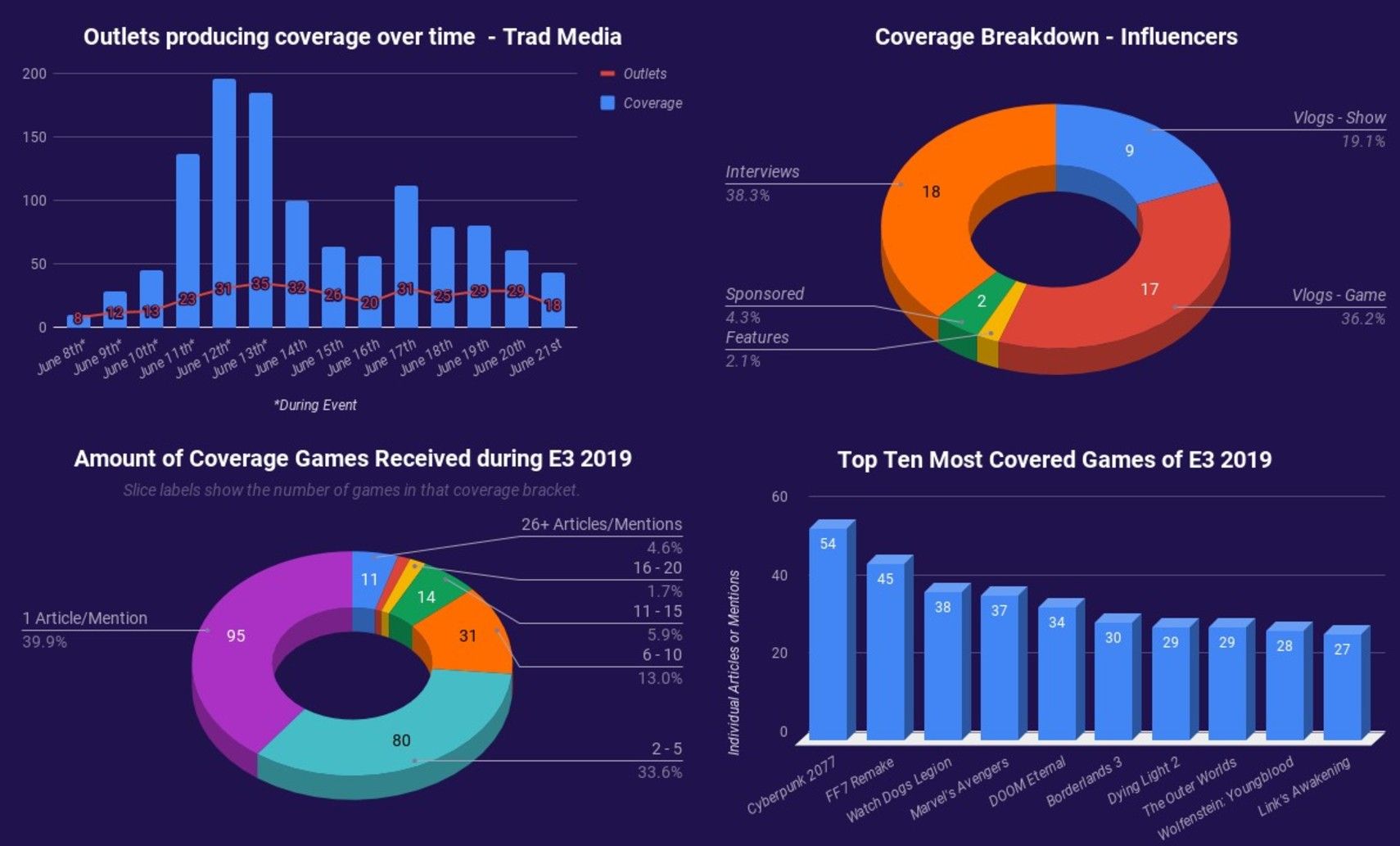Media coverage of the Electronic Entertainment Expo, more widely known as E3, has been steadily dropping during the past few years. This is especially true in the case of what is considered "relevant" channels that exclude duplicate entries or research outlets, the number of which dropped significantly from 2017 to 2018, barely recovering at all this year.
The study, which was done by Evolve PR, was comprised of 10% of the attending traditional online media outlets, and 10% of the attending influencers. The number of total media attendees goes from 3000 in 2017, to 1831 in 2018, only to slightly rise this year at 2024 - but the study also notes that from 2018 to 2019, the total number of relevant channels dropped. Some of the decrease can be blamed upon a number of outlets shutting down in the meantime, while another portion is due to podcasts moving from the Traditional Media sample into the Influencer sample. Also, press members from smaller outlets have probably been considered public instead of press in the past few years. However, even with that in mind, the numbers are still dropping.
All of this points to E3 being in bad shape - at least in terms of what it represents right now, as the expo is shifting "away from an all-encompassing industry-focused event, and toward a more public showcase or convention akin to PAX," the study explains. Names such as Sony, Activision, and EA have also chosen not to attend lately, and the ease with which the event can be covered from home - without paying for the tickets both to travel there and to get into the expo itself - is certainly not helping its case.
The type of coverage is also changing, with the sixth to tenth most covered games not getting nearly as much coverage as the topmost covered one. The tenth most covered game, Link's Awakening, has only gotten 27 individual articles or mentions - half the amount of the top title, Cyberpunk 2077. In fact, 73.5% of all games got up to five articles or mentions, and out of those, 39.9% - the majority - only got a single individual article or mention. The reasoning behind this is simple: if a game already has a lot of hype surrounding it, it is more likely to be picked up by journalists who know that readers will want to know more about the topic. Therefore, other games - ones that look promising but are not talked about very much - are a gamble.
The shift away from what is considered traditional media at this point may lead people to believe that influencers are taking over - but this is simply not true, the study shows. Only 47 total pieces of qualifying coverage were found, against 1217 pieces from traditional sources, which means they are simply not covering E3 in a way that would make up for the lack of media attendance in the past few years.
All in all, E3 is certainly not what it used to be, but they seem to be aware of this, as its intention to rebrand for 2020 was leaked earlier this year. However, it has long been considered either dead or very close to it by fans and haters alike - and unfortunately for it, the famous expo is on its deathbed.
Source: Evolve PR


